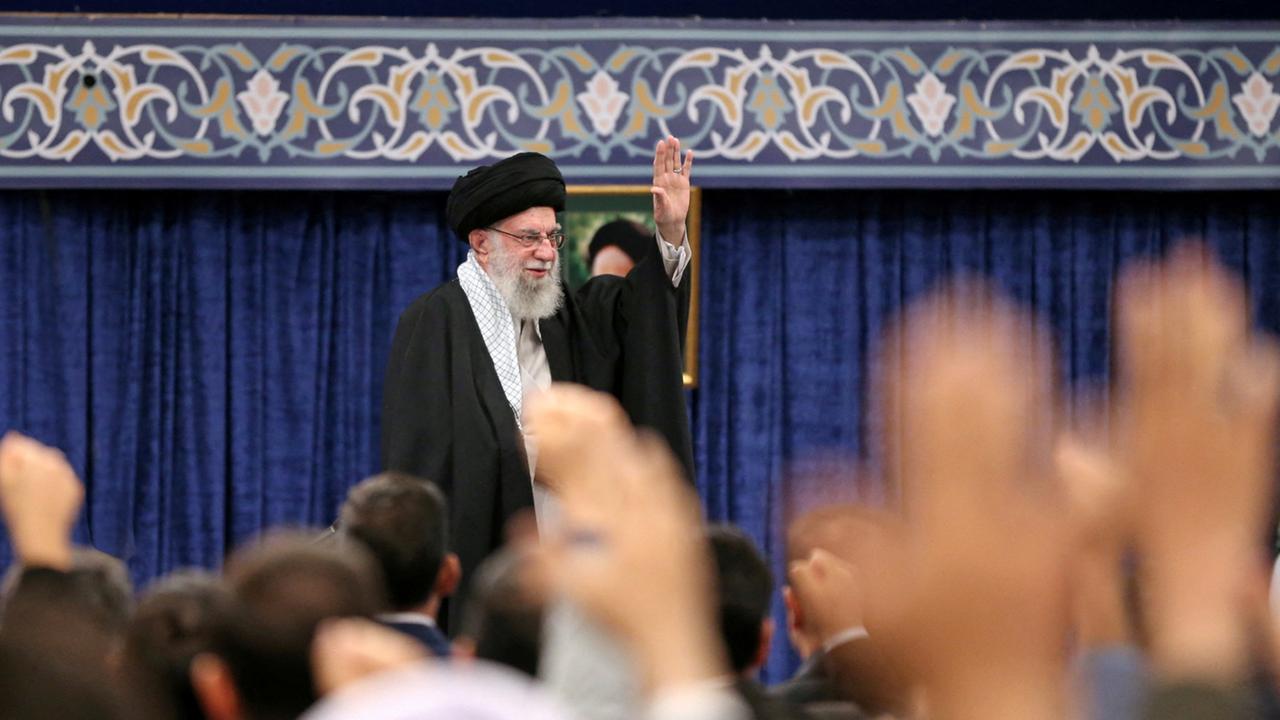The EU sees it as proven that Iran has supplied missiles to Russia. Now it is making its threat serious and is imposing new sanctions. The punitive measures also affect several airlines and chemical companies.
The foreign ministers of the EU states decided on new sanctions against Iran at a meeting in Luxembourg. The EU and its partners accuse Tehran of supplying ballistic missiles to Russia. This step is seen as a breach of taboo because of Russia's ongoing war of aggression against Ukraine.
The punitive measures particularly affect the Iranian state airline Iran Air. In the future, it will no longer be able to sell tickets in the EU. The state airline recently offered several direct flights from Europe to Iran, for example from Frankfurt, Hamburg, Cologne/Bonn and Vienna. This made it one of the few airlines with non-stop connections to Iran.
In addition to Iran Air, Mahan Air and Saha Airlines are also affected by the sanctions. However, both companies recently no longer offered scheduled flights from EU countries to Iran. All three companies are accused of being involved in programs to supply weapons and technology to Russia. Mahan Air is said to have a close connection to the Revolutionary Guards, Iran's elite unit.
However, Iran will not be completely cut off from the EU by the sanctions. Many business travelers and Iranians flying home from Europe already use connecting connections via Istanbul or Dubai.
weapons producers affected
The sanctions also affect, among others, a research center, a manufacturer of aluminum oxide for solid fuels and procurement companies. The listed people include representatives of the aerospace industry, military officials and a deputy defense minister of Iran.
The punitive measures should target companies, institutions and people involved in the production and supply of weapons, EU diplomats said after the corresponding decision by the foreign ministers in Luxembourg.
No shops, no entry
In the future, no business will be allowed to be done with the companies and people affected by the new EU sanctions. In addition, assets existing in the EU will be frozen and affected people will no longer be allowed to enter the EU.
The EU had already imposed sanctions on Iran a few months ago because of the delivery of so-called kamikaze drones to Russia. According to intelligence findings, artillery ammunition was also delivered to Russia.
Iran denies Rocket delivery
Iran denied supplying ballistic missiles to Russia. “I have said this several times and I will say it again: Iran does not supply ballistic missiles to Russia,” said Foreign Minister Abbas Araghchi before the sanctions decision. The planned EU sanctions are therefore absurd and merely a pretext to put more pressure on Iran.
German State Minister Anna Lührmann (Greens) said on the subject in Luxembourg: “There is very clear evidence that Iran has delivered ballistic missiles.” This is clearly not compatible with the duty to make peace. We are committed to ensuring that Ukrainians have the right to decide for themselves about their future. That is why Russia should not be supported militarily. Lührmann represents Foreign Minister Annalena Baerbock in Luxembourg, who canceled her participation at short notice due to another date.
EU Commission President Ursula von der Leyen welcomed the decision to sanction Iran. At the same time, she demanded: “More is needed.”
Video conference with Ukrainian Foreign Minister
The discussions in Luxembourg will also focus on developments in the Middle East and Ukraine. An informal exchange with the new Ukrainian Foreign Minister Andrij Sybiha is planned via video conference.
British Foreign Secretary David Lammy will be attending as a guest in Luxembourg. It is the first time since Brexit that a British Foreign Secretary has attended an EU Foreign Affairs Council. Lammy said the security of the UK and Europe was inseparable. It is important to remain firm and clear about Russia's aggression in Ukraine and the conflicts in the Middle East.
EU loans for Ukraine
The EU foreign ministers also want to release loans worth up to 35 billion euros for Ukraine today. The Ukrainian government should be able to use the money to buy weapons.
The loans are to be guaranteed by Russian state assets that Russia has invested in Europe. It has been frozen since the war began. Hungary has so far been the only EU country to oppose the project. If it stays that way, the loan would have to be financed through the EU budget.
With information from Helga Schmidt, ARD studio Brussels




